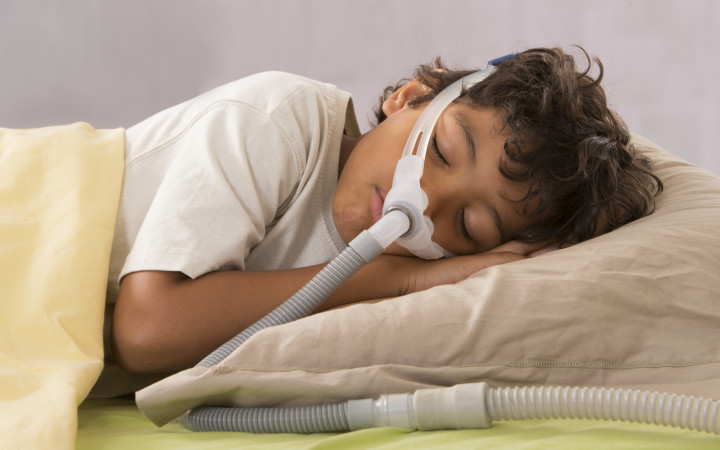Today’s Wonder of the Day was inspired by Hannah. Hannah Wonders, “What is sleep apnea?” Thanks for WONDERing with us, Hannah!
Do you snore? Have you ever heard your parents or siblings snore? If you’ve ever been part of a snore-filled slumber party, you know snoring disrupts sleep. However, it is also a sign of sleep apnea.
Sleep apnea makes people stop breathing during sleep. Does that sound scary? We think so. However, most people wake up when they stop breathing. They may not remember it because they are only barely awake. Still, the brain normally signals that breathing has stopped. Then, the person wakes up just enough to start breathing again.
There are two types of sleep apnea—obstructive and central. What’s the difference? When someone has obstructive sleep apnea, their airway is blocked. This can be caused by tonsils or other tissue. Central sleep apnea is when the brain stops sending signals needed to breathe. This lasts until the brain signals for breathing to start again.
How does a person know they have sleep apnea? After all, doesn’t all this happen in their sleep? That’s a great point! People find out about sleep apnea when they notice symptoms. For example, people with sleep apnea don’t sleep well. They wake up many times a night to start breathing again. As a result, one symptom of sleep apnea is daytime sleepiness.
Other symptoms include difficulty paying attention and . Some people also wake up with dry mouth or headaches. As mentioned earlier, many people with sleep apnea also snore. None of these symptoms mean a person definitely has sleep apnea. If you have some of these symptoms and are worried, talk to a doctor.
The doctor will ask lots of questions. They’ll want to know all about you and your family’s health. That‘s because sleep apnea sometimes runs in families. However, there are other causes. These include large tonsils, heart failure, and obesity.
Luckily, sleep apnea is treatable. Sometimes, a healthier diet and exercise helps. Breathing devices also help. They make sure the patient keeps breathing all night. Doctors sometimes suggest surgery. During surgery, they remove tissue that gets in the way of breathing. With treatment, people with sleep apnea can control the disorder.
Sleep apnea affects over 18 million Americans of all ages. Left untreated, the disorder can have serious effects. It leads to high blood pressure, stroke, and diabetes. Do you or someone you know have sleep apnea? Follow the doctor’s orders.
Sleep is essential for a healthy lifestyle. It lets your brain and body rest. Good sleep helps with a healthy heart, weight, and mind. It also improves mood. If you or someone you know isn’t sleeping well, get help. It may not be sleep apnea, but you’ll feel better knowing for sure!
Standards: NGSS.LS3.A, NHES.1, CCRA.L.3, CCRA.L.6, CCRA.R.1, CCRA.R.2, CCRA.R.10, CCRA.W.2, CCRA.W.7, CCRA.W.8, CCRA.W.9, CCRA.SL.1, CCRA.SL.2, CCRA.L.1, CCRA.L.2




